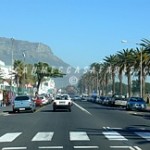Understand Safari Tier Ratings & Experiences In South Africa | Why Visit South Africa For Your Safari Vacation Or Holidays In Africa
SOUTH AFRICA MEDICAL & HEALTH SERVICES
Most parts of South Africa are malaria-free. Consult your doctor or travel clinic regarding appropriate malaria prophylaxis. You can further minimize the risk by wearing mosquito repellent and sleeping under a mosquito net. Typhoid and injection against hepatitis A and B are both necessary. A yellow fever inoculation and certificate from travelers over a year of age coming from an infected area, is an official requirement. Tap water is safe to drink, though one might consider bottled water in rural areas. Smoking has been banned in public areas in South Africa, but there usually are designated areas where you can smoke. The law also prohibits anyone under 18 from entering a designated smoking area and from buying cigarettes. South African medical facilities are, in general, of a high standard, particularly in urban areas where large state-hospitals and private clinics are in good supply. State-run hospitals with their subsidized facilities, however, suffer the problems of overcrowding. Private hospitals, which number in the region of 80 countrywide, mostly fall under the control of health providers Netcare or Medi-Clinic. These South African medical centers offer high standards and specialist treatments, but rates are a lot higher.
Tourists are advised to take out comprehensive medical cover before their arrival in South Africa. Having said this, medical treatment here is often less costly than abroad, and visitors sometimes elect to have operations, in the field of plastic surgery for instance, in South Africa. Provincially-run emergency services, also under pressure, are now assisted by a number or privately-operated services, which attend to roadside and other emergencies, transporting patients in well-equipped ambulances and emergency vehicles to appropriate hospitals. The standard of training of doctors in South Africa has enjoyed a good reputation for decades. Urban areas are well supplied with general and specialist practitioners, all registered with the Health Professions Council of South Africa. Most require payment on consultation, and may offer discounts for immediate settlement. South African pharmacists are unable to dispense Schedule 4 drugs and up without a prescription, so tourists on chronic medication who expect to run out during their stay, should come armed with the necessary doctor’s script. The country has many other medical professionals such as dentists, physiotherapists, psychologists, bio-kineticists, podiatrists, as well as alternative medical practitioners such as homeopaths, acupuncturists and reflexologists. Health shops abound, often staffed by knowledgeable people offering sound advice. For travel off the beaten track, it should be noted that rural medical facilities in South Africa are less sophisticated, with the attention on primary medical care.































